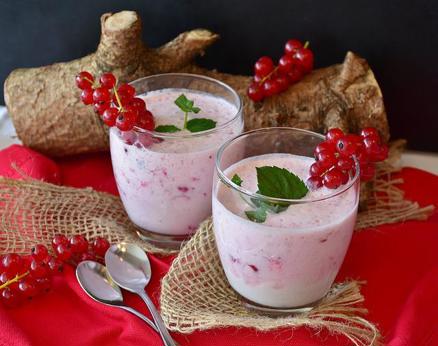Squeezing and juicing shemitah produce

Shemitah smoothie and liquor from citrus peels and myrtle berries
It is permissible to squeeze or juice fruits and vegetables when they are often squeezed or juiced and most people drink this juice.
However, it is forbidden to prepare juice from fruits and vegetables whose juice most healthy people do not drink.
The index is if a certain type of juice is sold in regular grocery stores.
Since today many types of fruit and vegetables are commonly consumed, it is permissible to prepare juice from the following: apples, carrots, tomatoes, cranberries, pears, passionfruit, grapefruits, tangerines, peaches, mango, strawberries, kiwi, mint (lemon-mint), pineapples, bananas, cherries, and dates.
Home juicing: Try to squeeze the entire fruit and avoid straining the edible pulp. For this purpose, it is permissible to use home juicers with large holes.
The definition of conventional use keeps changing and is reassessed each shemitah. Several shemitot ago, juicing carrots was not conventional, but today it is widespread, so now it is permissible.
Can I make a green shemitah smoothie?
There is an ever-growing practice of preparing smoothies and frozen yogurts (at home and industrially) from a broad variety of fruits and vegetables that are generally not squeezed. These include: Pears, dates, avocado, kale, beets, melon, cucumbers, celery, spinach, wheat grass, and ginger, among many others.
In light of this, people may blend shemitah fruits and vegetables to prepare shakes or frozen yogurt.
Juices used for health reasons only, such as detox diets, are not considered general use.
The litmus test is if any given type of produce is used in a smoothie at smoothie bars.
Note that the halachic allowance to prepare such foods as smoothies is in light of the common practice today. Since this was not common use in the past, this form of processing was formerly forbidden. This underscores the importance of reevaluating societal norms 🔎 each shemitah to determine what constitutes common use.
For instance, next shemitah (5789), should it be common to drink potato smoothies, it would be allowed. Today it is not. If you have any questions (or you want shemitah smoothie recipes 😆), feel free to contact us.
Can I prepare liquor from shemitah fruits or vegetables?
In past shemitot, mainstream ruling was that it was forbidden to prepare alcoholic beverages by fermenting fruits or vegetables with kedushat shevi'it with the exception of wine from grapes and raisins (some also permitted kedushat shevi'it vishniac).
Today, however, many fruits and vegetables are routinely fermented and distilled for liquor, spirits, or other alcoholic beverages.
Following much discussion and deliberation on this topic among the rabbis of Torah VeHa'aretz Institute (as of Adar 5782), it was decided that today produce that is commonly fermented and distilled in the drink industry may be used to prepare alcoholic beverages.
What is considered common?
Rabbi Yehudah HaLevy Amichay (head of the Institute) ruled that the index is the liquors available in regular supermarkets (such as Osher Ad, Yeinot Bitan, Machsanei HaShuk, Rami Levy, etc.).
Examples: apples, passionfruit, fennel, cherries, peach, melon, pineapple, and figs. (Examples above are based on my visit at the liquor section of my local supermarket, but the list is not comprehensive).
Liquors available at special liquor stores carry any conceivable concoction and are not necessarily considered common.
The same is true of liquor and wine recipes available online; the fact that there are carrot wine and sweet potato vodka recipes available online does not make it conventional until such drinks are available in regular supermarkets.
Preparing liquor from citrus peels and myrtle berries
So we learned that shemitah produce can be prepared as an alcoholic beverage if this is the common in the drink industry and they can be found in regular supermarkets.
Two more cases where this is allowed:
Citrus peels are generally meant for animal fodder; using them for human food enhances their status.
This is why it is permissible to use the peels for this purpose, even though when the peels are soaked in alcohol they can no longer be used.
Myrtle berries are not generally eaten, so it seems they do not have kedushat shevi'it. Even according to authorities who hold that they have kedushat shevi'it, it would only be so if the one harvesting or planting the myrtles did so for this purpose of preparing myrtle liquor.
In any case, it would nevertheless be permitted to use them in this way.




